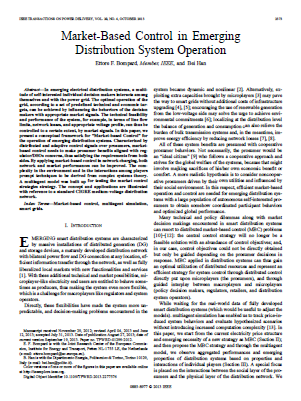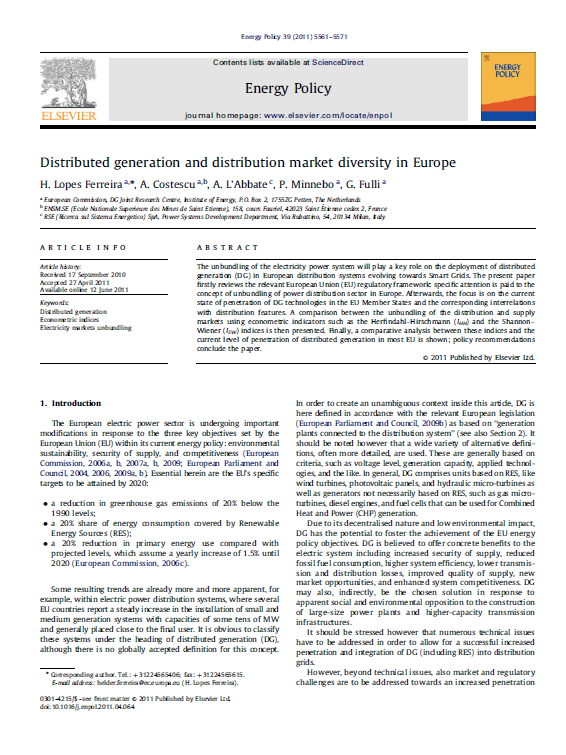Background and context
At electricity distribution level, the growing deployment of distributed energy resources - including renewables, electric vehicles, storage -, puts pressure on market and grid operations. At the same time, innovative business models and services, like citizen energy communities, and provision of flexibility, start to occupy distribution network investment plans.
Our role and products
Markets are the instruments supporting power system operations and developments by distributing electricity-related costs and benefits among players. Market rules may need to evolve in order to accommodate technological innovation and energy delivery solutions, while steering the energy transition to the citizens’ benefit.
This is why we inform legislative and regulatory actions by studying options and evolutions of the retail energy market schemes. We also developed monitoring and assessment products and platforms, which you can access here below.
Main publications

2013 - Market-Based Control in Emerging Distribution System Operation
In emerging electrical distribution systems, a multitude of self-interested individual decision makers interacts among themselves and with the power grid. The optimal operation of the grid, according to a set of predefined technical and economic targets, can be achieved by influencing the behaviors of the decision makers with appropriate market signals. The technical feasibility and performance of the system, for example, in terms of line flow limits, network losses, and appropriate voltage profile, can thus be controlled to a certain extent, by market signals. In this paper, we present a conceptual framework for “Market-based Control” for the operation of emerging distribution systems. Characterized by distributed and adaptive control signals over prosumers, market-based control needs to make prosumer benefits aligned with regulator/DSOs concerns, thus satisfying the requirements from both sides. By applying market-based control in network charging, both network and market performances can be improved. The complexity in the environment and in the interactions among players prompt techniques to be derived from complex systems theory. A multiagent model was built up for testing the market control strategies strategy. The concept and applications are illustrated with reference to a standard CIGRE medium-voltage distribution network.

2011 - Distributed generation and distribution market diversity in Europe
The unbundling of the electricity power system will play a key role on the deployment of distributed generation (DG) in European distribution systems evolving towards Smart Grids. The present paper firstly reviews the relevant European Union (EU) regulatory framework: specific attention is paid to the concept of unbundling of power distribution sector in Europe. Afterwards, the focus is on the current state of penetration of DG technologies in the EU Member States and the corresponding interrelations with distribution features. A comparison between the unbundling of the distribution and supply markets using econometric indicators such as the Herfindahl–Hirschmann (IHH) and the Shannon–Wiener (ISW) indices is then presented. Finally, a comparative analysis between these indices and the current level of penetration of distributed generation in most EU is shown; policy recommendations conclude the paper.
